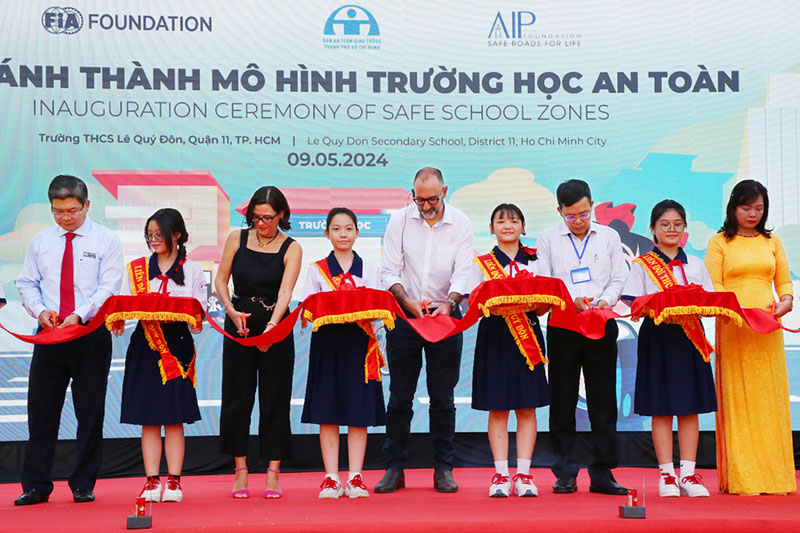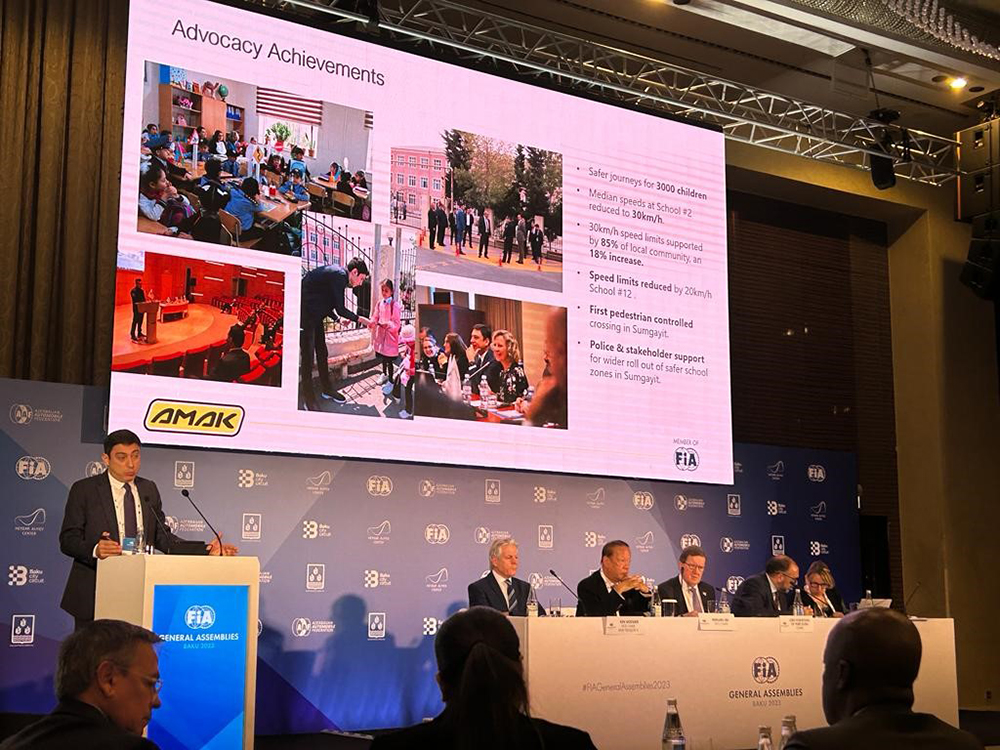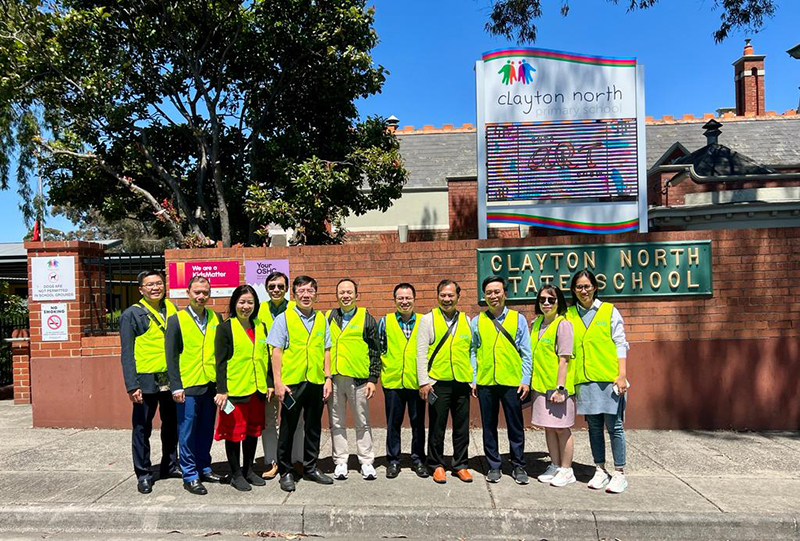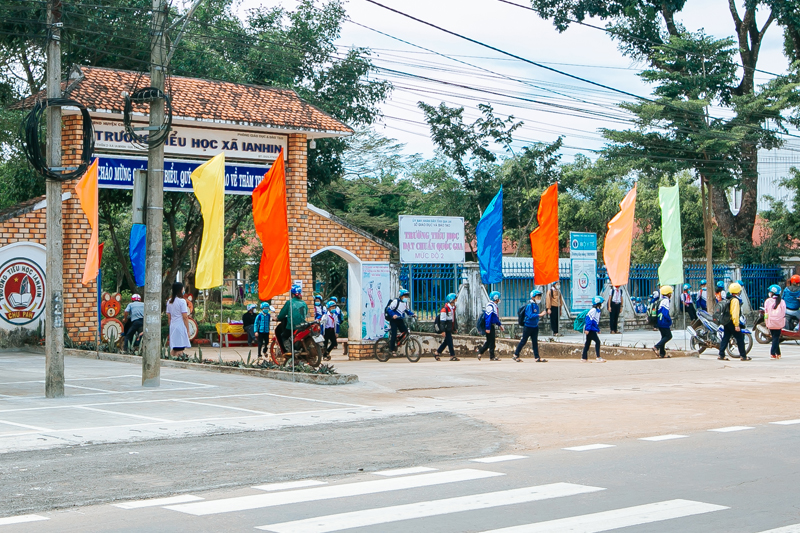At Global Goals forum, UN Ambassadors call for action to cut road traffic deaths
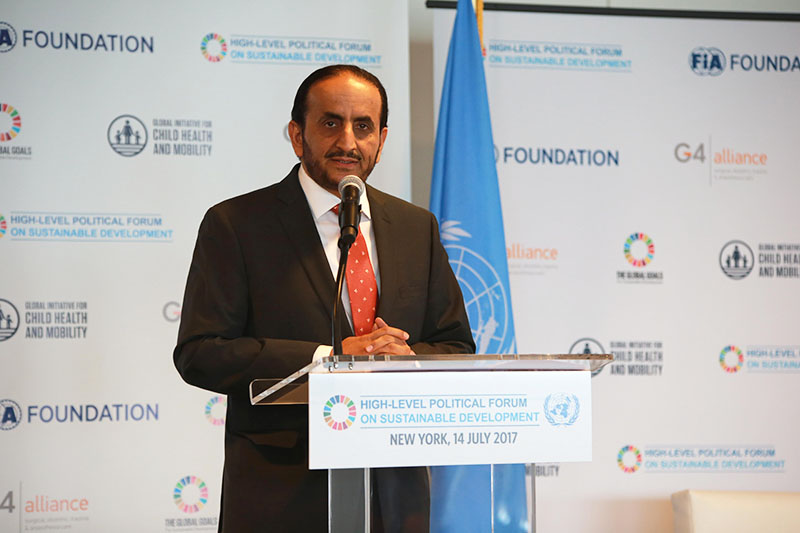
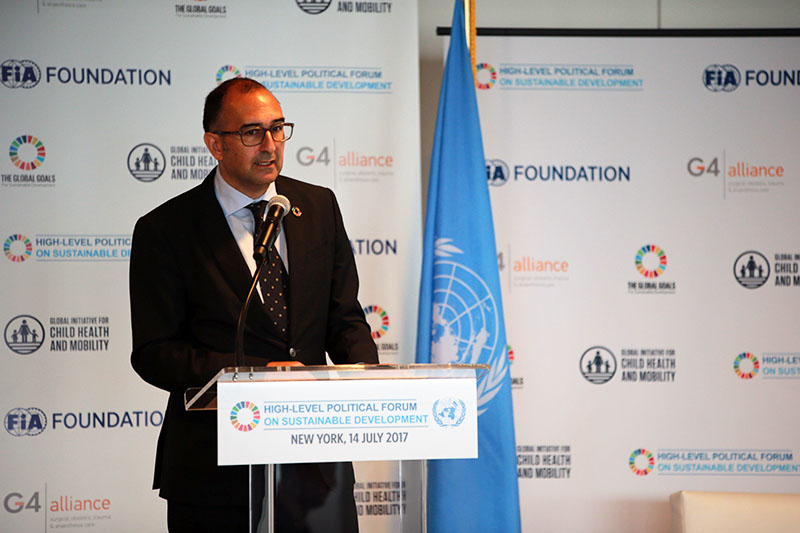
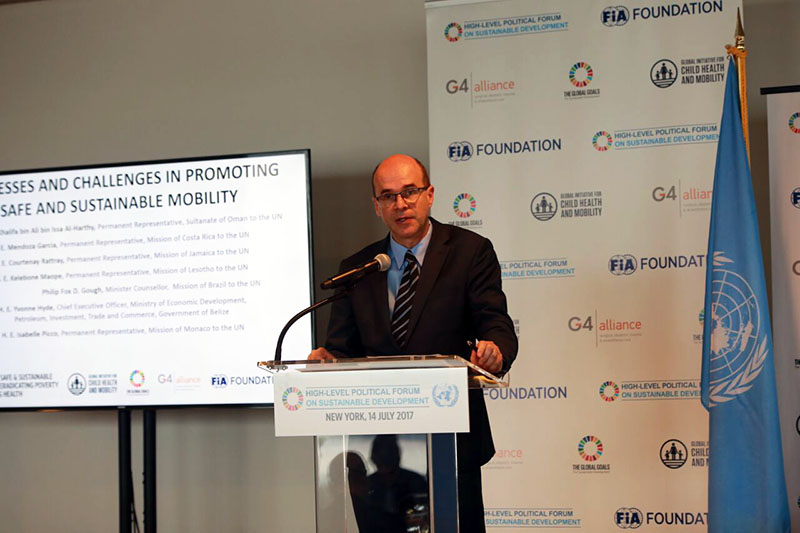
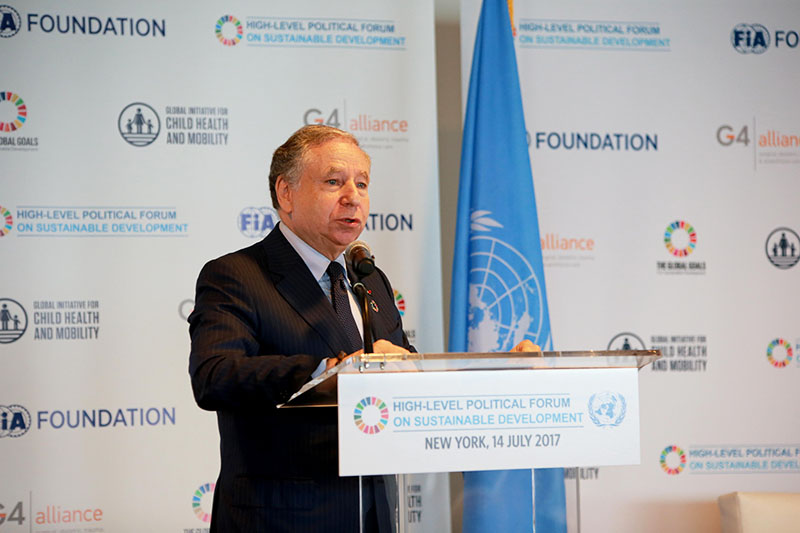

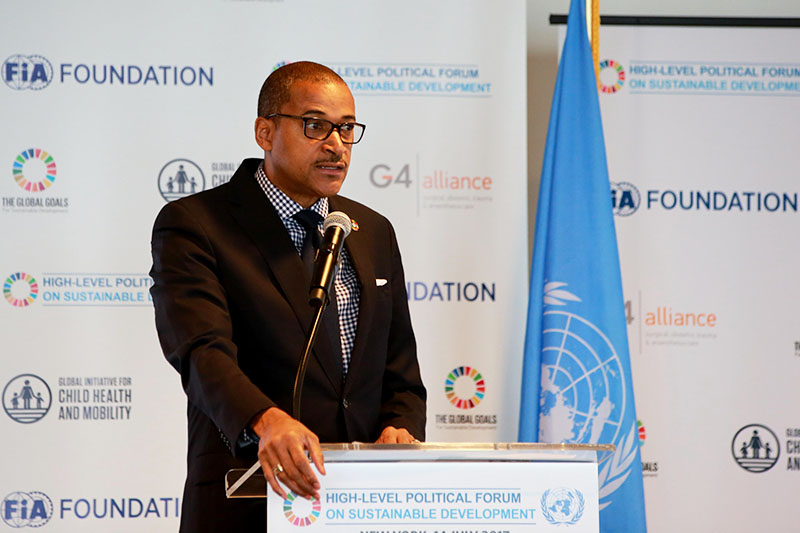
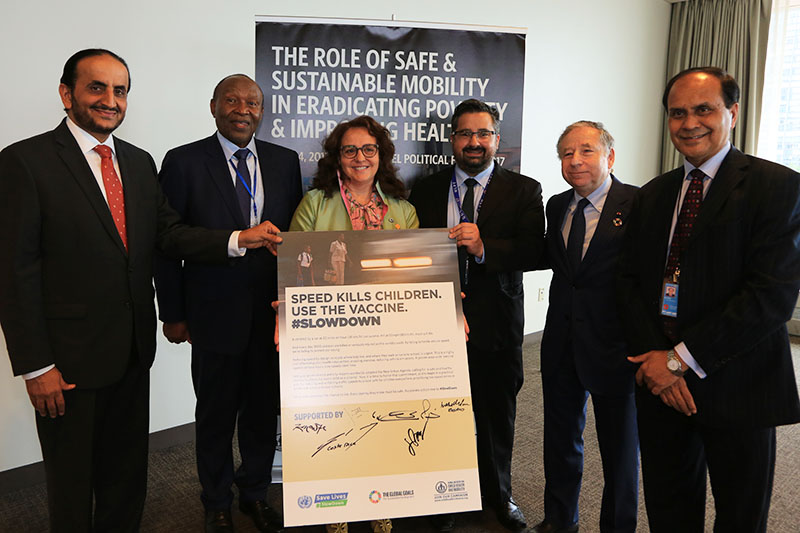
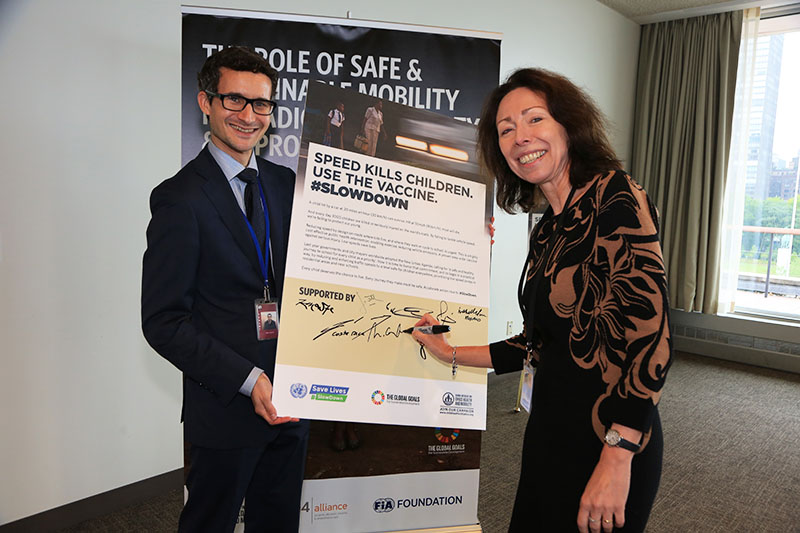
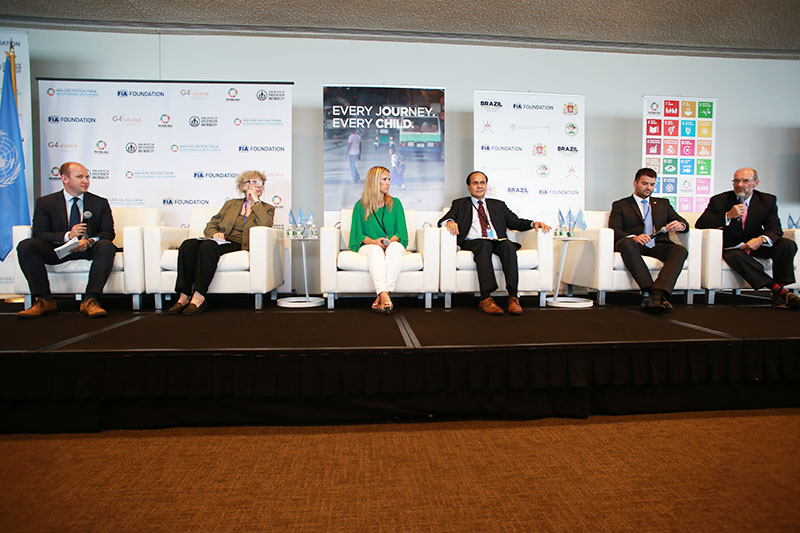
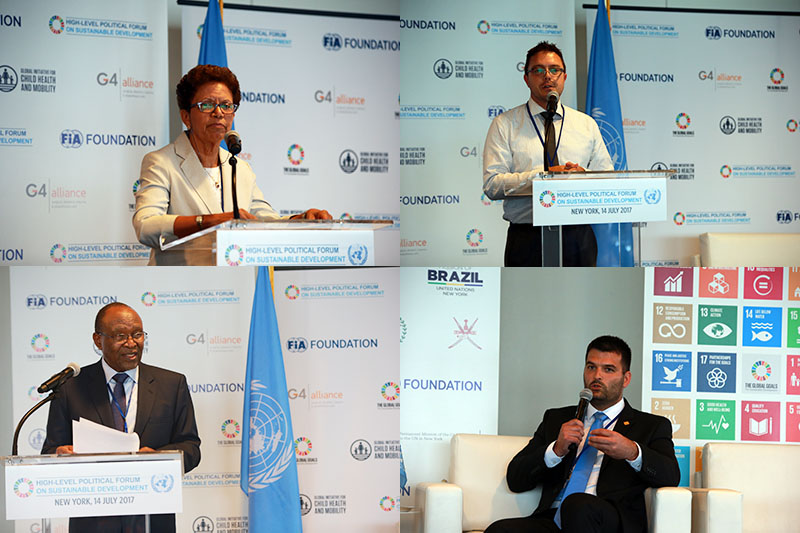
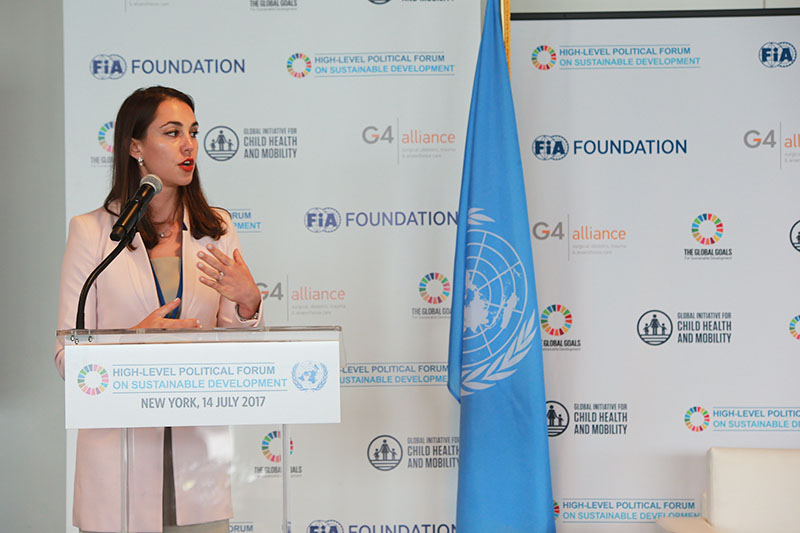
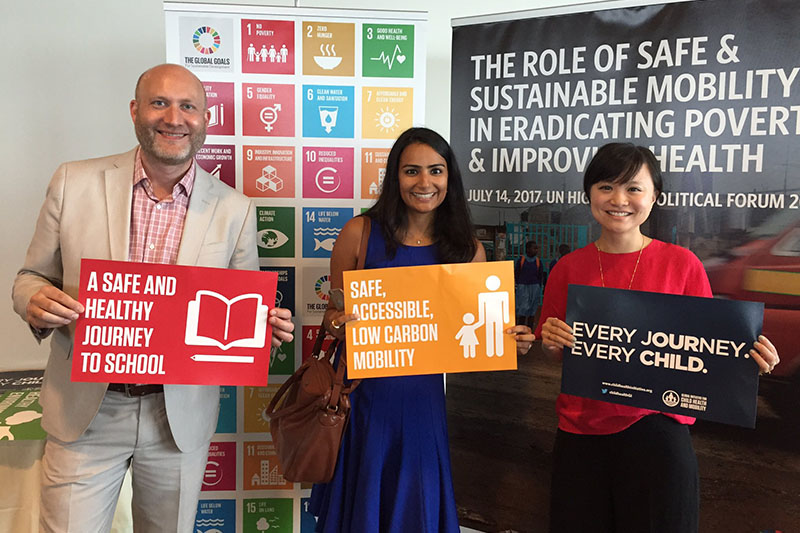
The annual United Nations High Level Political Forum has heard a call for urgent action to meet the global Health target for road safety, as well as other mobility-related targets on air pollution and sustainable cities, at an event organised by the Global Initiative for Child Health & Mobility and the G4 Alliance.
Hosted by the FIA Foundation at UN Headquarters in New York during the High Level Political Forum, Ambassadors gathered to discuss their challenges and successes in reaching Sustainable Development Goals to achieve safe and sustainable mobility. They were joined by representatives of more than 20 countries, the UN Special Envoy for Road Safety, experts from the World Health Organization, the Global Initiative for Child Health and Mobility, and participants from other UN organisations, NGOs, academia, and the private sector.
The 14 July 2017 luncheon side event, “The role of safe & sustainable mobility in eradicating poverty and improving health” brought together a wide range of interests and representation, connecting road safety to broader health issues such as surgical and trauma reduction. Nearly 130 participants attended the meeting, convened by the Global Initiative for Child Health and Mobility and the G4 Alliance for Surgical, Obstetric, Trauma and Anaesthesia care, and co-sponsored by the FIA Foundation, Missions of Czech Republic, Belize, Brazil, Georgia, and the Sultanate of Oman.
Drawing much needed national and international attention to these issues, the event was held during the 2017 High Level Political Forum, a UN platform to follow up and review the Sustainable Development Goals and enable participation by UN Member States and agencies. Safe and sustainable mobility are integral to achieving the theme of the 2017 HLPF, ‘Eradicating poverty and promoting prosperity in a changing world.’ As populations and motorization increase, it is the poorest who bear the greatest burden of unsafe roads. The health and life chances of millions are held back by inequitable access to mobility. Preventable road traffic crashes inflict immense economic costs on countries; huge financial burdens and pressure on health systems; and crushing debt on millions of families, often resulting in lost economic and educational opportunities.
This year, SDG 3, to “ensure healthy lives and promote well-being for all at all ages” was under review, including the road safety goal, to “by 2020, halve the number of global deaths and injuries from road traffic accident.” Countries were invited to submit a Voluntary National Review to the HLPF, and report on their review, or general efforts towards meeting SDGs pertaining to safe and sustainable mobility during the event.
Hosting the event, FIA Foundation Executive Director Saul Billingsley described the scale of road traffic injury as “a public health emergency. Yet in too many countries legislative change is painfully slow and available UN regulations – for example on vehicle crash standards – that can save lives immediately are not being adopted quickly enough. Here in this room we have a caucus of the concerned, and now we need to grow the campaign and build the action. We should set our ambition to meet SDG 3.6 by 2020. But if we can’t then the target should be extended and the work continued in line with the other SDGs.”
Co-host Brendan Allen, Executive Director of the G4 Alliance, highlighted the vital role of safe and equitable access to surgical care for reducing the severity of road traffic injuries. He also praised preventative strategies and pledged the G4 Alliance’s support for the ‘Speed Vaccine’ campaign.
The luncheon formally opened with the Permanent Representative of Sultanate of Oman to the UN, H.E. Sheikh Khalifa bin Ali bin lssa Al-Harthy (see main image above). “My country played a pioneering role in launching the campaign for road safety in the United Nations. We are committed to ensuring modern, environmentally friendly and safe roads in Oman. Already, we have experienced a 23% reduction in fatalities this year, when compared with the same time period last year,” he said.
For Brazil, Minister Counsellor Philip Fox-Drummond Gough highlighted his country’s leadership in organising the 2nd High Level Conference on Road Safety in 2015, and sponsoring the subsequent 2016 UN resolution which adopted many elements of the ‘Brasilia Declaration’. Safe roads were a crucial element of equitable urban development and human rights, he said.
Making a keynote address, the UN Secretary General’s Special Envoy for Road Safety, Jean Todt, urged countries to actively support a new UN Road Safety Fund: “The UNECE has put forward a detailed proposal which calls for an estimated $770 million annually over the next decade if we are to reduce fatalities by 50%.UNECE estimates that every $100 million contributed to the Road Safety Fund would support: the leveraging of $3.4 billion of country and city road safety investment; the saving of 64,000 lives; and the averting of 640,000 serious injuries.” He challenged governments to do more to link road safety with other transportation impacts. “Road safety can no longer only be addressed from a health lens. It is clearer that improvements in environmental and transport policies have an impact on health and safety outcomes. And resources must be in place to support national governments address these intersections and the implementation of integrated policies.”
The Permanent Representative from the Mission of Costa Rica, H. E. Mendoza Garcia, highlighted the potential to turn infrastructure challenges into opportunities to improve road safety. “Road crashes are the third major cause of mortality in our country – a public health crisis we must address. The right to safe mobility must be for all. If we are serious about ‘leaving no one behind’, improved infrastructure and road safety must play a role. We have a 35 year gap in infrastructure development, but this crisis can also be an opportunity to design infrastructure according to best standards.”
Jamaica’s Permanent Representative, H. E. Courtenay Rattray, highlighted the country’s successful efforts in saving lives, and commitment to saving more: “We are making concerted efforts to reduce road fatalities and are committed to halving deaths and injuries from road accidents by 2020. Already, we have seen 25% less deaths recorded this year compared to the same time period last year – but that figure is still too high.”
Many Ambassadors made the link between road safety and access to education. To draw attention to this crucial issue, they signed the ‘Speed Vaccine’ campaign to reduce traffic speeds to a level safe for children. The campaign, endorsed by leading public health figures including Michael Bloomberg, Jimmy Carter and Margaret Chan, builds on SDG 3.6 and the UN Habitat III New Urban Agenda call for “a safe and healthy journey to school for every child as a priority.”
Other speakers included the Permanent Representative of Monaco to the United Nations, H. E. Isabelle Picco; the Permanent Representative of Lesotho to the United Nations, H. E. Kelebone Albert Maope; and the CEO of the Ministry of Economic Development, Petroleum, Investment, Trade and Commerce of Belize, H. E. Ms. Yvonne Hyde, who described the positive impact of a road safety corridor improvement in her country.
FIA Foundation Deputy Director Avi Silverman moderated a panel discussion of experts including: Martin Farář, Head of Road Safety Department, Ministry of Transport, Czech Republic; Nino Tkhilava, Head of the Department of Environmental Policy and International Relations, Ministry of Environment and Natural Resources Protection of Georgia; Md. Abdul Karim, Managing Director, PKSF, Government of Bangladesh; Vesna Marinko, Head of Department for Development and Coordination of Road Safety, Slovenian Traffic Safety Agency; and Werner Obermeyer, Deputy Executive Director, World Health Organization Office to the UN.
“These countries’ impressive efforts are just the tip of the iceberg. We are delighted that so far, about one third of countries submitting Voluntary National Reviews this year mention mobility, and the road safety SDG has been reviewed by Bangladesh, Belgium, Belize, Ethiopia, Malaysia, and Thailand. Others are reviewing related goals and targets. This is imperative to connecting the international agenda to life-saving efforts on the ground,” said Natalie Draisin, Director of the North American Office & UN Representative, FIA Foundation.
The FIA Foundation would like to extend its gratitude to countries which co-sponsored the event, included safe and sustainable mobility in their Voluntary National Review, and participated in the meeting. The meeting continued momentum from an HLPF side event co-sponsored by the FIA Foundation and Government of Georgia in 2016.
View inputs to the HLPF, including Voluntary National Reviews



